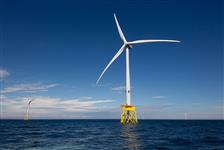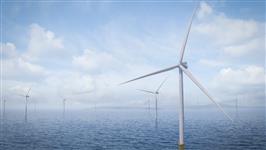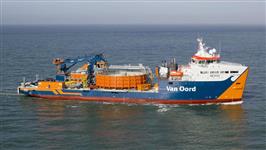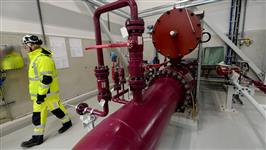
BP Contemplates Unsubsidized Offshore Wind Farms in the UK
Posted 07/08/2023 12:15
BP, the London-based energy giant, is exploring the possibility of constructing two offshore wind farms in the Irish Sea without relying on government subsidies, a move that could mark a significant shift in the industry. Traditionally, the offshore wind sector has heavily relied on government support through contracts for difference (CfD) auctions, where consumers pay generators a fixed price for low-carbon power.
However, BP is considering self-financing the projects as it expects to use the electricity generated by the wind farms for its own needs. This approach would be an unprecedented development in the market, where soaring costs and increasing demand for renewable energy have driven developers to seek additional public support.
The proposed wind farms, named Morgan and Mona, are planned to be situated around 20 miles off the coasts of north Wales and northwest England. Together, they would boast up to 214 turbines with the capacity to power approximately 3.4 million homes. BP's Chief Executive Officer, Bernard Looney, revealed to The Times that construction could commence as early as late next year.
The decision to pursue these projects comes as part of BP's efforts to expand its presence in the offshore wind sector, driven by the anticipation of rising electricity demand within its operations. The company has committed to increasing investments in both traditional oil and gas ventures and renewable energy projects.
The challenges in the offshore wind industry are evident, as Vattenfall recently canceled its plans for a wind farm off the coast of Britain due to higher costs. Similar situations have arisen in the US, with developers seeking contract renegotiations or exits from projects with low power prices that make the investments less viable.
In the UK, offshore wind farms have faced delays in obtaining planning consent and connecting to the national grid. BP's Morgan and Mona projects are not expected to apply for planning consent until early next year, a process that typically takes at least a year.
BP has recently achieved success in Germany's offshore wind auction, securing the rights to construct 4 gigawatts of capacity in the North Sea. This win has nearly doubled the company's global pipeline of projects to 9.2 gigawatts. The expansion into offshore wind aligns with BP's focus on renewable energy, given its growing network of electric vehicle chargers and ongoing biofuels plant construction in Germany, which will require substantial amounts of green electricity.








